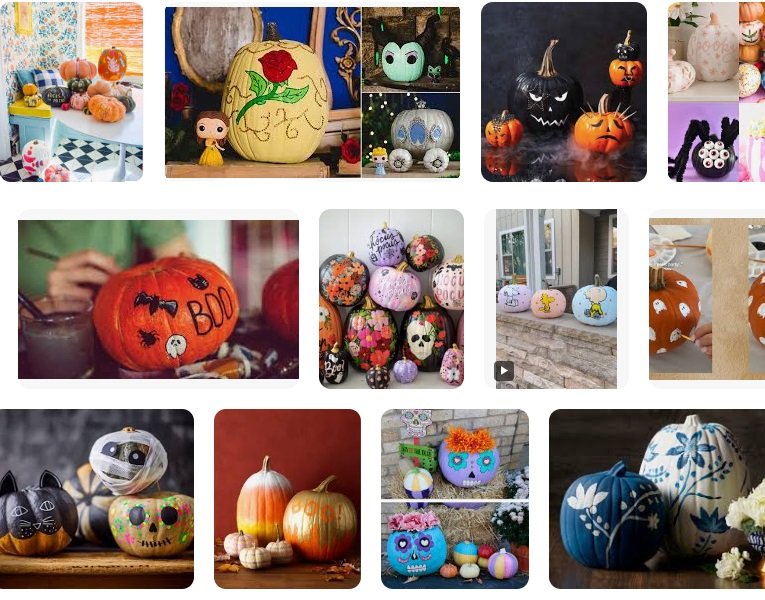Introduction
Comedy plays have been a cornerstone of English literature and theatre for centuries, bringing joy and laughter to audiences while also offering sharp social commentary. This article explores the rich history, various types, notable playwrights, famous plays, and the cultural impact of comedy plays in English.
Defining Comedy Plays
Comedy plays are theatrical works that aim to entertain and amuse the audience through humor, often involving exaggerated characters, situations, and dialogue. They can range from light-hearted and whimsical to biting satire.
Importance of Comedy Plays in Literature and Theatre
Comedy plays play a crucial role in theatre and literature, providing a balance to more serious works and offering a vehicle for social critique. They have the power to bring people together, foster understanding, and highlight human folly in a way that is both engaging and thought-provoking.
Historical Development
Early Comedy Plays
The origins of comedy can be traced back to ancient Greece, with playwrights like Aristophanes. These early comedies often included political satire and social commentary, setting the stage for future comedic works.
Renaissance Comedy
The Renaissance period saw the flourishing of comedy with playwrights like William Shakespeare, whose comedies such as “A Midsummer Night’s Dream” and “Twelfth Night” are still celebrated today for their clever use of language and complex characters.
Restoration Comedy
Restoration comedy, which emerged in the late 17th century, is known for its sexual explicitness and witty dialogue. Playwrights like William Congreve and George Etherege wrote plays that often satirized the manners and mores of the upper class.
Modern Comedy Plays
The 20th and 21st centuries have seen diverse forms of comedy, from the social critiques of George Bernard Shaw to the situational humor of Neil Simon. Modern comedies continue to evolve, incorporating contemporary issues and new media.
Types and Categories of Comedy Plays
Farce
Farce is a type of comedy characterized by exaggerated situations, physical humor, and improbable events. It often includes slapstick elements and is designed to provoke laughter through absurdity.
Satire
Satirical comedies use humor to criticize and expose the flaws of individuals, institutions, or society. They often employ irony, exaggeration, and parody to highlight issues and provoke thought.
Romantic Comedy Plays
Romantic comedies focus on love and relationships, often featuring misunderstandings, mistaken identities, and happy endings. They explore the humorous side of romance and human connections.
Black Comedy Plays
Black comedy, or dark comedy, deals with serious and often taboo subjects in a humorous way. It finds comedy in the bleak, exploring themes like death, illness, and existential despair with a satirical edge.
Situational Comedy Plays
Situational comedy, or sitcom, revolves around a fixed set of characters in a consistent setting, dealing with everyday situations in humorous ways. This format is popular in both theatre and television.
Stand-up Comedy Plays
Though primarily a performance art, stand-up comedy has influenced and been incorporated into comedic plays. It involves a comedian delivering a series of jokes and stories directly to an audience.
Notable Playwrights Comedy Plays
William Shakespeare
William Shakespeare is perhaps the most famous playwright in the English language, known for his brilliant comedies such as “Much Ado About Nothing,” “As You Like It,” and “The Comedy of Errors.”
Molière Comedy Play
French playwright Molière, although writing in French, has had a significant impact on English comedy, with his works being widely translated and performed. His plays like “Tartuffe” and “The Misanthrope” are renowned for their sharp wit and social commentary.
Oscar Wilde Comedy Play
Oscar Wilde’s witty and satirical plays, including “The Importance of Being Earnest” and “An Ideal Husband,” are celebrated for their clever dialogue and incisive critique of Victorian society.
George Bernard Shaw Comedy Play
George Bernard Shaw’s comedies, such as “Pygmalion” and “Arms and the Man,” combine humor with social and political commentary, challenging conventional thinking and highlighting societal issues.
Noël Coward
Noël Coward’s sophisticated comedies, like “Blithe Spirit” and “Private Lives,” are known for their sharp wit, clever plots, and elegant dialogue, capturing the essence of British upper-class society.
Neil Simon
American playwright Neil Simon is famous for his humorous and relatable plays, including “The Odd Couple” and “Barefoot in the Park.” His works often explore the complexities of human relationships with warmth and humor.
Famous Comedy Plays
“A Midsummer Night’s Dream” by William Shakespeare
“A Midsummer Night’s Dream” is one of Shakespeare’s most beloved comedies, featuring a complex web of love, magic, and mistaken identities. Its whimsical characters and humorous situations have made it a timeless classic.
“The Importance of Being Earnest” by Oscar Wilde
Wilde’s “The Importance of Being Earnest” is a masterpiece of wit and satire, exploring themes of identity, social expectations, and the absurdity of high society. Its clever dialogue and memorable characters continue to delight audiences.
“Pygmalion” by George Bernard Shaw
“Pygmalion,” the basis for the musical “My Fair Lady,” is a comedic exploration of social class and transformation. Shaw’s sharp wit and insightful commentary on society make it a standout work in the comedy genre.
“Blithe Spirit” by Noël Coward
“Blithe Spirit” is a comedic play about a novelist who accidentally conjures the ghost of his first wife during a séance. Coward’s play is celebrated for its clever plot, witty dialogue, and humorous exploration of the supernatural.
“The Odd Couple” by Neil Simon
Neil Simon’s “The Odd Couple” is a classic comedy about two mismatched roommates, Felix and Oscar. The play’s humorous exploration of friendship, compatibility, and personal quirks has made it a favorite among audiences and theatre companies.
Themes and Styles of Comedy Plays
Social Satire
Many comedy plays use humor to critique and expose societal issues, norms, and behaviors. Social satire can be found in works from Shakespeare to modern playwrights, offering a humorous lens through which to view and understand society.
Romantic Entanglements
Romantic misunderstandings, mistaken identities, and love triangles are common themes in comedy plays. These elements create humorous situations that entertain while exploring the complexities of love and relationships.
Mistaken Identities
Mistaken identities and disguises are a staple in comedic plays, leading to humorous misunderstandings and plot twists. This theme is prominent in works like Shakespeare’s “Twelfth Night” and Wilde’s “The Importance of Being Earnest.”
Humor through Language
Wordplay, puns, and clever dialogue are key elements in many comedy plays. The use of language to create humor can be seen in the works of Shakespeare, Wilde, and Coward, among others.
Absurd Situations
Absurd and improbable situations often drive the humor in comedy plays. These scenarios, while exaggerated, reflect real-life absurdities and human behaviors, making audiences laugh while provoking thought.
Techniques and Elements of Comedy Plays
Use of Wit and Wordplay
Wit and wordplay are essential techniques in comedic writing, creating humor through clever language and dialogue. Playwrights like Shakespeare and Wilde excel in this area, crafting lines that are both funny and insightful.
Physical Comedy Plays
Physical comedy, or slapstick, involves exaggerated movements and actions to create humor. This technique is often used in farce and situational comedies, adding a visual element to the humor.
Timing and Pacing
Effective timing and pacing are crucial in comedy to ensure that jokes land and scenes flow smoothly. Good comedic timing can enhance the humor and keep the audience engaged.
Character Archetypes
Comedy often relies on recognizable character archetypes, such as the fool, the lover, and the miser. These archetypes provide a familiar framework for the audience and allow for the exploration of universal themes.
Plot Devices
Common plot devices in comedy include misunderstandings, mistaken identities, and coincidences. These elements create humorous situations and drive the narrative forward.
Cultural Impact of Comedy Plays
Influence on Society and Morals
Comedy plays have historically influenced societal norms and morals, using humor to challenge and critique established behaviors and beliefs. They can reflect and shape public opinion, making audiences rethink their perspectives.
Reflection of Social Issues
Many comedy plays address and reflect social issues, from class and gender roles to politics and relationships. By presenting these issues humorously, playwrights can engage audiences in meaningful conversations.
Role in Shaping Public Opinion
Through satire and social commentary, comedy plays can shape public opinion and inspire change. They often highlight the absurdities of certain behaviors or policies, encouraging audiences to question and reconsider their views.
Contemporary Comedy Scene
Modern Trends in Comedy Plays
The contemporary comedy scene is diverse, incorporating elements from various genres and media. Modern trends include the use of multimedia, interactive performances, and blending comedy with other genres like drama and thrillers.
Influences from Other Media
Comedy plays today are influenced by television, film, and digital media. Stand-up comedy, sitcoms, and internet culture all contribute to the evolution of comedic theatre.
Prominent Modern Playwrights
Modern playwrights like Tom Stoppard, Alan Ayckbourn, and David Ives continue to push the boundaries of comedy with innovative works that explore contemporary issues and human experiences.
Popular Contemporary Comedy Plays
Contemporary comedy plays such as “The Play That Goes Wrong” by Henry Lewis, Jonathan Sayer, and Henry Shields and “One Man, Two Guvnors” by Richard Bean are celebrated for their inventive humor and engaging performances.
Major Theatres and Venues
The Globe Theatre
The Globe Theatre in London, originally built in 1599, is closely associated with William Shakespeare. It remains a major venue for performing his comedies and other works, providing audiences with an authentic Elizabethan theatre experience.
The National Theatre
The National Theatre in London is known for its diverse repertoire, including contemporary and classic comedies. It plays a significant role in promoting new playwrights and innovative productions.
The Royal Shakespeare Company
The Royal Shakespeare Company (RSC) is dedicated to performing the works of Shakespeare and his contemporaries. The RSC’s productions of Shakespeare’s comedies are renowned for their high quality and inventive interpretations.
Broadway
Broadway in New York City is a major hub for theatre, including comedy plays. It hosts a variety of productions, from classic comedies to new works by emerging playwrights.
West End
London’s West End is another key location for theatre, known for its vibrant and diverse range of comedic productions. It attracts audiences from around the world, offering both traditional and contemporary comedy plays.
Performing Comedy Plays
Challenges in Acting Comedy
Acting in comedy presents unique challenges, including mastering timing, physicality, and delivery. Actors must balance the humorous elements with genuine emotion to create believable and engaging performances.
Techniques for Actors
Effective techniques for comedic actors include understanding comedic timing, developing strong characterizations, and practicing improvisation. Training in physical comedy and voice work can also enhance performance.
Famous Comedic Actors
Notable comedic actors, such as Robin Williams, John Cleese, and Lucille Ball, have left a lasting impact on the genre with their exceptional talent and memorable performances.
Writing Comedy Plays
Tips for Playwrights
Successful comedy playwrights often focus on relatable situations, strong characters, and witty dialogue. Understanding the nuances of humor and audience expectations is crucial for crafting engaging comedic plays.
Common Pitfalls
Common pitfalls in writing comedy include relying too heavily on clichés, overusing slapstick, and neglecting character development. Balancing humor with substance and depth is essential for a successful comedy play.
Balancing Humor with Substance
A well-balanced comedy play combines humor with meaningful themes and messages. Playwrights should aim to entertain while also providing insight and commentary on human experiences and societal issues.
Audience and Reception in Comedy Plays
Demographics of Comedy Play Audiences
Comedy play audiences are diverse, ranging from young adults to older generations. Understanding the preferences and demographics of the target audience can help tailor the humor and themes to resonate more effectively.
Critical Reception
critical reception of comedy plays varies, with some works being celebrated for their wit and innovation, while others may be criticized for lack of depth or originality. Reviews and feedback play a significant role in the success of a production.
Box Office Performance
Box office performance of comedy plays can be influenced by factors such as star power, marketing, and audience appeal. Successful comedies often enjoy long runs and generate significant revenue.
Technological Advances
Impact of Technology on Comedy Plays
Technology has transformed comedy plays, with advancements in lighting, sound, and special effects enhancing performances. Digital platforms also allow for wider distribution and accessibility of comedic works.
Digital Performances
The rise of digital performances, especially during the COVID-19 pandemic, has expanded the reach of comedy plays.
Streaming Services
Streaming services like Netflix and Amazon Prime have popularized filmed versions of comedy plays, broadening their audience and preserving performances for future generations.
Expert Insights about Comedy Plays
Interviews with Renowned Playwrights
Interviews with renowned comedy playwrights provide valuable insights into their creative processes, inspirations, and challenges. These perspectives can inspire and guide aspiring playwrights and theatre enthusiasts.
Opinions from Theatre Critics
Theatre critics offer informed opinions on comedy plays, highlighting strengths and areas for improvement. Their reviews can influence public perception and the success of a production.
Conclusion
Summary of Key Points
Comedy plays in English have a rich history and continue to evolve, reflecting societal changes and incorporating new forms of humor. From Shakespeare to modern playwrights, comedy plays offer entertainment, social critique, and insight into the human condition.
The Future of Comedy Plays
The future of comedy plays looks promising, with technological advancements and innovative storytelling techniques expanding the boundaries of the genre. As society continues to change, comedy plays will undoubtedly adapt, remaining a vital and cherished part of theatre.
FAQs
What makes a comedy play successful?
A successful comedy play combines relatable situations, strong characters, witty dialogue, and effective timing. It balances humor with meaningful themes and resonates with its audience.
How has comedy in theatre evolved over time?
Comedy in theatre has evolved from ancient Greek satire to modern multimedia performances. Each era has brought new styles, themes, and techniques, reflecting societal changes and audience preferences.
Who are some of the most influential comedy playwrights?
Influential comedy playwrights include William Shakespeare, Molière, Oscar Wilde, George Bernard Shaw, Noël Coward, and Neil Simon. Their works have left a lasting impact on the genre and continue to be celebrated.
What are the different types of comedy plays?
Different types of comedy plays include farce, satire, romantic comedy, black comedy, situational comedy, and stand-up comedy. Each type employs unique elements and techniques to create humor.
















